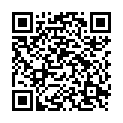|
|
|
| Module code: E412 |
|
4V (4 hours per week) |
|
5 |
| Semester: 4 |
| Mandatory course: yes |
Language of instruction:
German |
Assessment:
Written exam after 4th semester
[updated 11.03.2010]
|
E412 Electrical Engineering, Bachelor, ASPO 01.10.2005
, semester 4, mandatory course
|
60 class hours (= 45 clock hours) over a 15-week period.
The total student study time is 150 hours (equivalent to 5 ECTS credits).
There are therefore 105 hours available for class preparation and follow-up work and exam preparation.
|
Recommended prerequisites (modules):
E101 Mathematics I
E104 Fundamentals of Electrical Engineering I
E201 Mathematics II
E203 Fundamentals of Electrical Engineering II
E301 Mathematics III
[updated 11.03.2010]
|
Recommended as prerequisite for:
|
Module coordinator:
Prof. Dr. Albrecht Kunz |
Lecturer:
Prof. Dr. Albrecht Kunz
[updated 11.03.2010]
|
Learning outcomes:
This lecture course is designed for students whose specialist area is not Communications Engineering or Microelectronics and Telecommunications.
After completing this course, students will have acquired a broad overview of common signal transmission processes, with particular emphasis being placed on digital concepts. Students will also have an appreciation of areas of current interest in modern communication systems.
The basic principles and skills acquired by students in this module will enable them to learn in their later careers those specific aspects of communications engineering that are of direct relevance to their professional work.
[updated 11.03.2010]
|
Module content:
1.Introduction
2.Complex baseband transmission
3.Analogue modulation techniques
4.Signal transmission via digitally modulated carriers
5.Applications of digital transmission techniques
[updated 11.03.2010]
|
Teaching methods/Media:
Overhead transparencies, PC, video projector
[updated 11.03.2010]
|
Recommended or required reading:
Jondral, Friedrich: Nachrichtensysteme, J. Schlembach Fachverlag
Mäusl, Rudolf: Analoge und digitale Modulationsverfahren, Hüthig-Verlag
Kammeyer, Karl Dirk: Nachrichtenübertragung, Teubner-Verlag
Werner, Martin: Nachrichtentechnik, Vieweg
Meyer, Martin: Kommunikationstechnik, Vieweg
[updated 11.03.2010]
|


